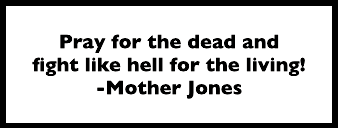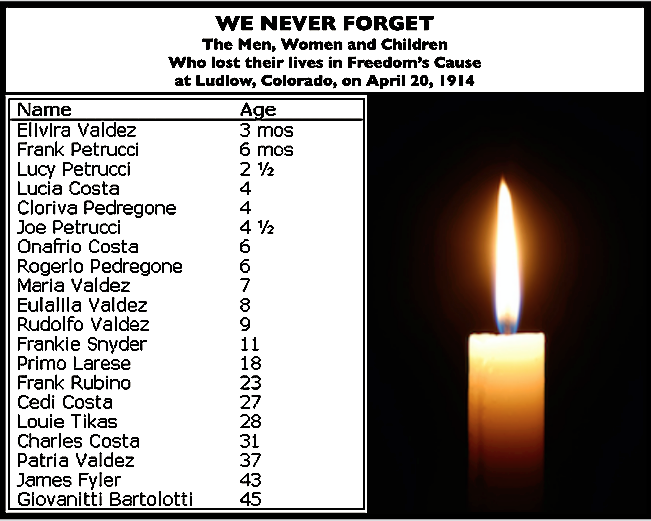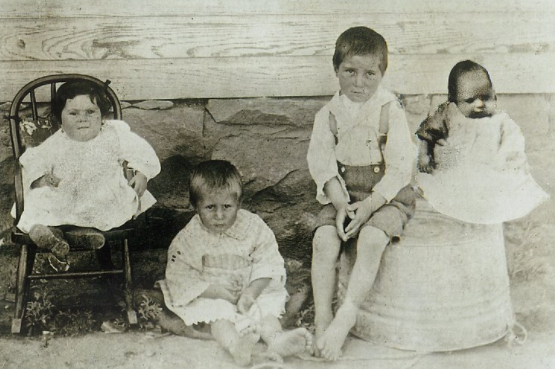 ———-
———-
 ———
———
Sept 15, 1913 – Trinidad, Colorado
Convention of District 15 of the United Mine Workers of America
The delegates opened their convention by singing The Battle Cry of Union:
We will win the fight today, boys,
We’ll win the fight today,
Shouting the Battle Cry of Union;
We will rally from the coal mines,
We’ll fight them to the end,
Shouting the Battle Cry of Union.
The Union forever, hurrah boys, hurrah!
Down with the Baldwins and up with the law;
For we’re coming, Colorado, we’re coming all the way,
Shouting the Battle Cry of Union.
The miners faced the grim prospect of going out on strike against the powerful southern coalfield companies, chief among them, John D Rockefeller’s Colorado Fuel and Iron Company. The coal operators had steadfastly refused to recognize the Union and had ignored all attempts at negotiation.
The miners had had their fill of dangerous working conditions, crooked checkweighmen, long hours, and low pay. They lived in peonage in company towns, were paid in company scrip, and were forced to shop for their daily needs in high-priced company stores which kept them always in debt. But, mostly they hated the notorious company guard system. Every attempt to organize had been met with brutality on the part of the coal operators.
Mother Jones addressed the convention for over an hour, urging the men to:
Rise up and strike! …Strike and stay with it as we did in West Virginia. We are going to stay here in Southern Colorado until the banner of industrial freedom floats over every coal mine. We are going to stand together and never surrender…
Pledge to yourselves in this convention to stand as one solid army against the foes of human labor. Think of the thousands who are killed every year and there is no redress for it. We will fight until the mines are made secure and human life valued more than props. Look things in the face. Don’t fear a governor; don’t fear anybody…You are the biggest part of the population in the state. You create its wealth, so I say, “Let the fight go on; if nobody else will keep on, I will.”
By unanimous vote of the Convention and with the full backing of the International Board, the strike call went out from District 15 of the United Mine Workers of America.
Pres John McLennan
VP Thomas Scott
Sec-Trea Ed Doyle
International Board Member John R Lawson:We hereby instruct that a strike call be issued by the District Policy Committee… to take effect Tuesday, September 23, 1913.
The demands were seven in number, some of which were already Colorado state law but unenforced:
1. Union recognition
2. 10% increase in wage scales
3. Eight hour day
4. Pay for dead work
5. Union checkweighman
6. Free choice of stores, boarding, and doctors
7. Enforcement of Colorado mining laws and abolition of the company guard system.
———-
Tuesday Sept 23, 1913 – The Exodus
On that cold, windy, wet day, 12,232 miners along with their wives and children, some 20,000 in all, made their way out of the company towns and into the tent colonies set up on land leased by the United Mine Workers of America. Company gunthugs broke down doors and tossed household furnishings into the streets. Don MacGregor reported for the Denver Express described the awful scene:
No one who did not see that exodus can imagine its pathos. The exodus from Egypt was a triumph, the going forth of a people set free…But this yesterday, that wound its bowed, weary way between the coal hills on the one side and the far-stretching prairie on the other, through the rain and the mud, was an exodus of woe, of a people leaving known fears for new terrors, a hopeless people seeking new hope, a people born to suffering going forth to new suffering.
The strikers lived through that winter in some twenty different tent colonies spread across the southern coalfield. Ludlow was the largest with about 1300 residents made up of Slavs, Germans, Russians, Portuguese, French, Hungarians, Italians, Greeks & other nationalities. Community life was well organized with strike relief, medical care, and local government for each colony. Evenings were filled with music.
The Death Special
Company gunthugs threatened the colonists continuously, firing into tents and beating strikers who went into town. The CF&I’s Death Special, an armored automobile with a mounted machine gun, roamed the strike zone at will, terrorizing the tent colonies. At the Ludlow tent colony, pits were dug under the tents for shelter in case of attack.
Governor Ammons sent in the National Guard. At first the strikers welcomed the soldiers, thinking they might offer some protection from the gunthugs. But as the private mine guards began to join the state militia, violence against the strikers only increased. Especially notorious were Troops A and B, made up almost exclusively of mine guards and other mine employees, and commanded by Major Hamrock assisted by the brutal Lt Linderfelt.
Sunday April 19, 1914, Orthodox Greek Easter – Ludlow Tent Colony
The colonists were in a festive mood as they turned out to help the Greeks celebrate their Easter. A week before, the Colony had celebrated the Catholic and Protestant Easter. Once again they greeted each other with a joyful, “Christ is risen.”
That afternoon the miners and their families were at the ball field enjoying a big game when four militiamen carrying high-powered rifles rode out of the canyon and came straight at them. Pearl Jolly jeered, “If we women would start after you with BB guns you’d drop your rifles and run.” One of the gunmen replied, “Never mind girly, you have your big Sunday today and tomorrow we’ll get the roast.”
Monday April 20, 1914 – The Ludlow Massacre
Early that morning Major Hamrock called up Louie Tikas, the leader of the Ludlow Tent Colony. The Major claimed that a man was being held in the camp against his will. Tikas met Hamrock at the Ludlow depot and explained that his camp police had searched every tent in the colony, “I tell you, Major, he is not there.”
At 10:01 AM, as Tikas headed back to the tents, three bombs went off. Militiamen began firing into the colony with machine guns, high-powered rifles, and explosive bullets. The women and children took shelter in their underground cellars. The men took up their rifles and set out to defend the colony as best they could. The attack lasted all day long.
Little Frankie Snyder was shot in the head as he crawled from the cellar to get water for his mother. Primo Larese was passing by on the highway when he caught a stray bullet. Frank Rubino died defending the colony (some accounts have him caught and then shot by the militia.) Defender, Charles Costa was also gunned down. His fellow miners sang to him as he died:
We have fought them here for years, boys,
We’ll fight them to the end,
Shouting the Battle Cry of Union.
Pearl Jolly struggled all day under fire to rescue the women and children sheltering in the cellars. Her dress was ripped by a bullet; another bullet hit the heel of her shoe. Yet she was able to lead many into the arroyo at the back of the colony. Survivors made their way to the Black Hills. Many more were able to escape when a train crew stopped their train between the militia and the tent colony.
Late in the afternoon, the colony’s defenders began to run out of ammunition. Tikas gave the order to retreat, but made it clear that he was staying behind. One of the Greek fighters said, “No, No, Louie, the melish will kill you.” But Tikas waved them on to safety as he turned and headed towards the front line.
By 7 pm, Lt Linderfelt and his militiamen were able to reach the colony. Louie Tikas, Giovanitti Bartolotti, and James Fyler were taken prisoner. Linderfelt strode up to Louie and shouted, “Oh, it’s you, you God-damned lousy redneck.” With the butt of a Springfield rifle, the Lieutenant struck his prisoner twice. The first blow cracked Louie’s skull, and the second broke his arm. All three prisoners were shot in the back.
The militiamen then turned their attention to burning down the tent colony. According to Lieutenant Karl E. Linderfelt:
You cannot go at it with kid gloves; you have to get results.
Tuesday April 21, 1914 – The Black Hole of Ludlow
Early in the morning, as Mary Petrucci struggled back to consciousness, she found herself in the blackened cellar beneath tent #58. Beside her were the bodies of her children, baby Frank, Lucy-2, and Joe-4. Also dead were Cedi Costa wife of Charlie Costa, and her children, Lucia-4 and Onafrio-6. Cedi was pregnant and at term. The baby was born postmortem, and that tiniest of strikers was laid upon Cedi’s breast and buried with her in her coffin. Lost also were Patria Valdez, along with all of her children, baby Elivira, Maria-7, Eulalia-8, and Rudolfo-9. The Pedregone children, Cloriva-4 and Rogerlo-6 were both dead. Their mother was the only other survivor from the burning of tent #58.
Alcarita Pedregone later described the ordeal:
When the tent had caught fire, the children had coughed and cried and the women had tried to pray. The bigger children had tried to climb out of the cellar. They had taken hold of the burning floor, but their fingers were singed and they fell back on the rest of them…She had felt more like cursing than praying in that pit. She wished she had died with her little babies. [Papanikolas, p.239]
———-
Wednesday April 22, 1914 – The Call To Arms
Organize the men in your community in companies of volunteers to protect the workers of Colorado against the murder and cremation of men, women and children by armed assassins in the employ of coal corporations, serving under the guise of state militiamen.
Gather together for defensive purposes all arms and ammunition legally available. Send name of leader of your company and actual number of men enlisted at once by wire, phone or mail to W. T. Hickey, Secretary of State Federation of Labor.
The call was signed by officers of District 15 UMWA, as well as representatives from the Denver Printer’s Union, the Colorado State Federation of Labor, the Denver Trades and Labor Assembly, and the Western Federation of Miners.
Determined to protect the remaining tent colonies, the miners tied red bandannas around their necks and went into battle along a 40 mile front. This became known as the Colorado Coalfield War. Jack Reed arrived in Trinidad late in the month and described a town in complete control of the miners.The Coalfield War was brought to an end when President Wilson sent in federal troops.
AFTERMATH
In May the Union organized a speaking tour for some of the Ludlow women. They traveled with Judge Lindsey and his wife to Chicago and points east. Pearl Jolly later described Mary Petrucci as “simply grieving herself to death.”
In February of 1915, Mrs. Petrucci traveled east again. This time to New York City in order to give her testimony before the Commission on Industrial Relations. While there, she gave an interview to Lucy Huffaker which was published in the New York Tribune on February 4, 1915. She spoke of her life without her children:
Perhaps it seems strange to you that I want to go back home. But I do. My man is there and my children are buried there, and I don’t believe I could ever live anywhere else. I have been so happy there. Why, there wasn’t a happier woman anywhere than I was..You see I’m Italian, although I was born in this country, and our people are gay of heart. I used to sing around my work and playing with my babies. Well, I don’t sing any more. And my husband doesn’t laugh as he used to do. I’m twenty-four years old and I suppose I’ll live a long time, but I don’t see how I can ever be happy again. But I try to be cheerful on account of my husband. It is so hard for him when he comes home from work to find only me in the house, and none of the children.
Sometimes he thinks I oughtn’t to go so often to the graves of the children, but something inside me makes me go. And I guess looking at those mounds can’t make me feel any worse than I do, anyway…
It was bad enough when Barney, my eldest child-he was six years old-died last March. But that couldn’t be helped, I suppose. And I like to think that he wasn’t sacrificed as the other three were. I don’t know that I want to run the risk of having any more children murdered as Joe and Lucy and Frankie were…
But you’re not to think that we could do any differently another time. We are working people-my husband and I-and we’re stronger for the union than we were before the strike. We’ve paid-I guess you’ll admit and everybody will-that we’ve paid a pretty big price for our belief. I don’t know just how any man and woman can do more than have their children, all their children, taken from them, do you? But we’re not ‘scabs.’ We never have been and we never will be. There is sorrow in our hearts, and there always will be, but there isn’t any dishonor.
I can’ have my babies back. But perhaps when everybody knows about them, something will be done to make the world a better place for all babies. At least, I like to think so. It is the only thing which gives me any comfort.
[Photo of Petrucci Children added.]
Linderfelt faced court martial, was found guilty of the facts on one count only, the assault upon Tikas with a rifle. However, no criminality was attached, and he was, therefore, acquitted.
John R Lawson, UMWA International Organizer, was tried for the murder of a mine guard, and found guilty even though dozens of witnesses put him at the Ludlow Tent Colony handing out pay on the day of the crime. He was sentenced to life in prison. The verdict was later set aside.
Under the protection of the federal troops, the strikers were able to live in comparative peace in their tent colonies. The strike dragged on and was eventually settled without union recognition. Instead, the “Rockefeller Plan” brought the company union into the Colorado Coalfields.
Years later, Zeese Papanikolas interviewed Ludlow survivor, Mary Thomas. He told her of his plans to visit Greece, as part of the research for his book on Louie Tikas. Mary told him:”
If you go to Greece again, tell them from me that they can be proud of the Greeks we had there. That every one was a hero. I have tears coming to me. That’s the way I feel about that. You write this and take it to the Greeks, because they had a pretty good man there in Louis.
September 15, 1914 – Trinidad, Colorado
Special Convention District 15 of UMWA
The strike had taken its toll on the delegates. The mood was grim. The delegates were meeting to consider President Wilson’s proposition for settlement of the strike without union recognition. Many felt that they could not refuse the President.
Again, Mother Jones spoke:
I stand facing the far east sounding the voices of the babes of Ludlow. I stand here bringing their tears, their wasted hopes to you, the heartaches of the mothers, the screams and the agonies of those who gave up their lives there; but they did not die in vain. They stirred the nation from end to end and you never again will see such a condition of slavery in Colorado.
Note: “Facing the far east” is a reference to Rockefeller HQ in NYC.
SOURCES
Quote Mother Jones, Pray for dead, Ab Chp 6, 1925
https://www.iww.org/history/library/MotherJones/autobiography/6
Buried Unsung, Louis Tikas and the Ludlow Massacre
-by Zeese Papanikolas
U of Utah Press, 1982
https://books.google.com/books?id=5wtMggM3di8C
Out of the Depths, The Story of John R Lawson
-by Barron B Beshoar
CO Labor Hx Com of Denver Area Labor Fed, 1980
https://books.google.com/books?id=gQ4eAAAAIAAJ
Those Damn Foreigners
-by Mary Thomas O’Neal
Minerva Books, 1971
https://books.google.com/books?id=5UN9AAAAMAAJ
Hx of the Labor Movement in the US, Vol 5
Chp 9: Revolt of the Miners: Colorado, 1913-1914
-by Philip S Foner
International Pub, 1980
https://books.google.com/books?id=vIn-bO2Oe1cC
The Education of John Reed, Selected Writings
-ed by John Stuart
International Pub, 1982
https://books.google.com/books?id=4wFHAAAAYAAJ
Commission on Industrial Relations, Volume 7
Testimony of Pearl Jolly, page 6,351
https://books.google.com/books/reader?id=x-geAQAAMAAJ&printsec=frontcover&output=reader&source=gbs_atb&pg=GBS.PA6351
The New York Tribune
(New York, New York)
-Feb 4, 1915
“That the Sacrifice of Her Three Children’s Lives May
Count for Workers’ Betterment, Mary Petrucci
Goes About Telling Ludlow’s Story.”
-by Lucy Huffaker
http://chroniclingamerica.loc.gov/lccn/sn83030214/1915-02-04/ed-1/seq-7/
The Speeches and Writings of Mother Jones
-ed by Edward M Steel
U of Pittsburgh Press, 1988
https://books.google.com/books?id=vI-xAAAAIAAJ
IMAGES
Much thanks to MKSinSA for List of Ludlow Martyrs
http://www.dailykos.com/user/MKSinSA
The Petrucci Children
“Descendants Recount The Ludlow Massacre 100 Years Later”
http://www.cpr.org/news/story/descendants-recount-ludlow-massacre-100-years-later
See also:
The Ludlow Massacre
-by Walter H. Fink
Director of Publicity, District No. 15, U. M. W. A.
Denver, 1914
https://archive.org/details/ludlowmassacrere00finkrich
This song is dedicated to Pedro Valdez who
lost his wife and children in the Ludlow Massacre.

